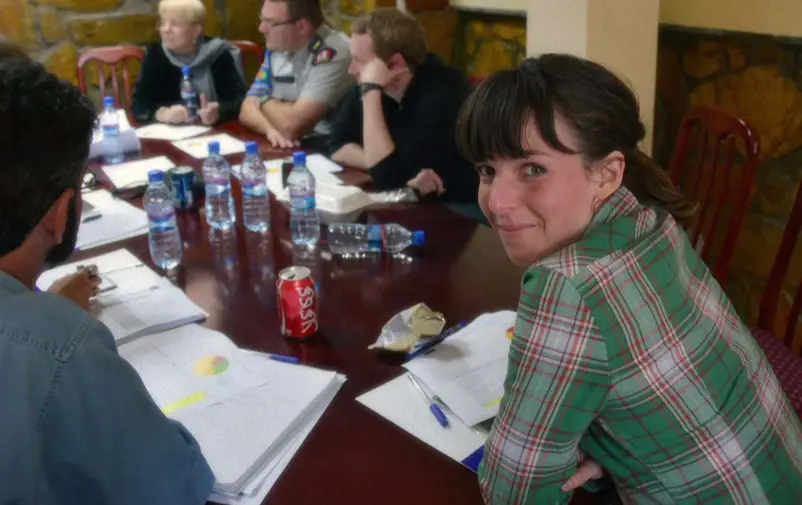
The 1325 Scholarship was established in memory of gender equality expert and peacebuilder Zaida Catalán.
Conflicts are on the rise globally, people are driven from their homes and the number of refugees is higher than ever. Today’s generation of youth is the largest the world has ever known and more than 600 million young people are now living in conflict areas or weak states.
– In a world where half of the global population is under 24 years of age it is not fair that youth are left out of decision-making on issues that highly affect the future. Youth, peace and security is an important perspective for us to bring into our work contributing to stability and development, says Sven-Eric Söder, Director-General of the FBA.
Resolution 2250 on youth, peace and security is considered the first of its kind. It was unanimously adopted by the UN Security Council in December 2015 and defines youth as persons aged 18 through 29.
– This autumn we will give recommendations on how Sweden can fulfill the resolution and contribute by giving more attention to young men and women’s work to shape lasting peace, security and development. An important aspect is youth participation in conflict prevention, not least in countering violent extremism, says Chris Coulter, head of FBA’s conflict prevention programme.
FBA has ongoing development cooperation strategy projects in Colombia, Liberia, Mali, Democratic Republic of the Congo and Africa south of the Sahara, and some work concerning youth, peace and security has already started.
FBA has been working in Colombia for years with disarmament, demobilization and reintegration of former combatants. Now FBA is looking into ways to enable youth who fought for some of the armed fractions in the war to adapt to a new civilian life and find a regular job, for instance by work training and education. About 35 percent of the population in Colombia is under the age of 20.
FBA also supports Peace Works, through grants from The Peace Million. Peace Works run a school in Bogotá together with local partners in order to strengthen young peace builders’ conflict management skills and their knowledge of human rights, principles of non-violence, communication and project management.
In Liberia, another war-torn country, some 40 percent of the population is under the age of 15 and the median age is 18. FBA contributes to a peaceful development by supporting youth participation in democratic debate. Youth as peace builders is an important element in Liberia, especially in relation to the coming national elections in the autumn of 2017. This year’s elections can result in the first democratic presidential transition in many years. Key individuals from the young community in Liberia have also been involved in FBA’s programme on dialogue and mediation.
Part of the background to the UN Security Council Resolution 2250 is the rise of radicalization among young people. The increased use of the Internet to recruit youth to commit terrorist acts is a concern of the Security Council, who underlines the need for UN Member States to work together to prevent terrorists from exploiting youth. The Member States are encouraged to engage local communities and non-governmental actors to develop strategies to combat violent extremism.
The Swedish youth center Fryshuset has been granted support from FBA and The Peace Million to conduct education aimed at countering violent extremism. Fryshuset will, among other things, provide training for local authorities in Swedish municipalities to actively engage youth in conflict prevention.
Photo from Liberia: Brittany Danisch
MORE FROM HOME
Are you a young peacebuilder at the beginning of your career with a strong commitment to women, peace and security? Do you have experience working in this field in the Democratic Republic of Congo or Afghanistan and want to take your commitment to the next level? Then you have the opportunity to apply for the 1325 scholarship for 2026.
2025-11-06 15:30FBA has both increased and adapted its work in Ukraine in the wake of Russia's invasion.
FBA in UkraineKlara Grenhagen works as a specialist at FBA's Africa unit with a focus on dialogue, reconciliation and peace processes.
More about our expertsFBA is part of Sweden’s development aid within the area of peace and security
Read more about the countries where we work